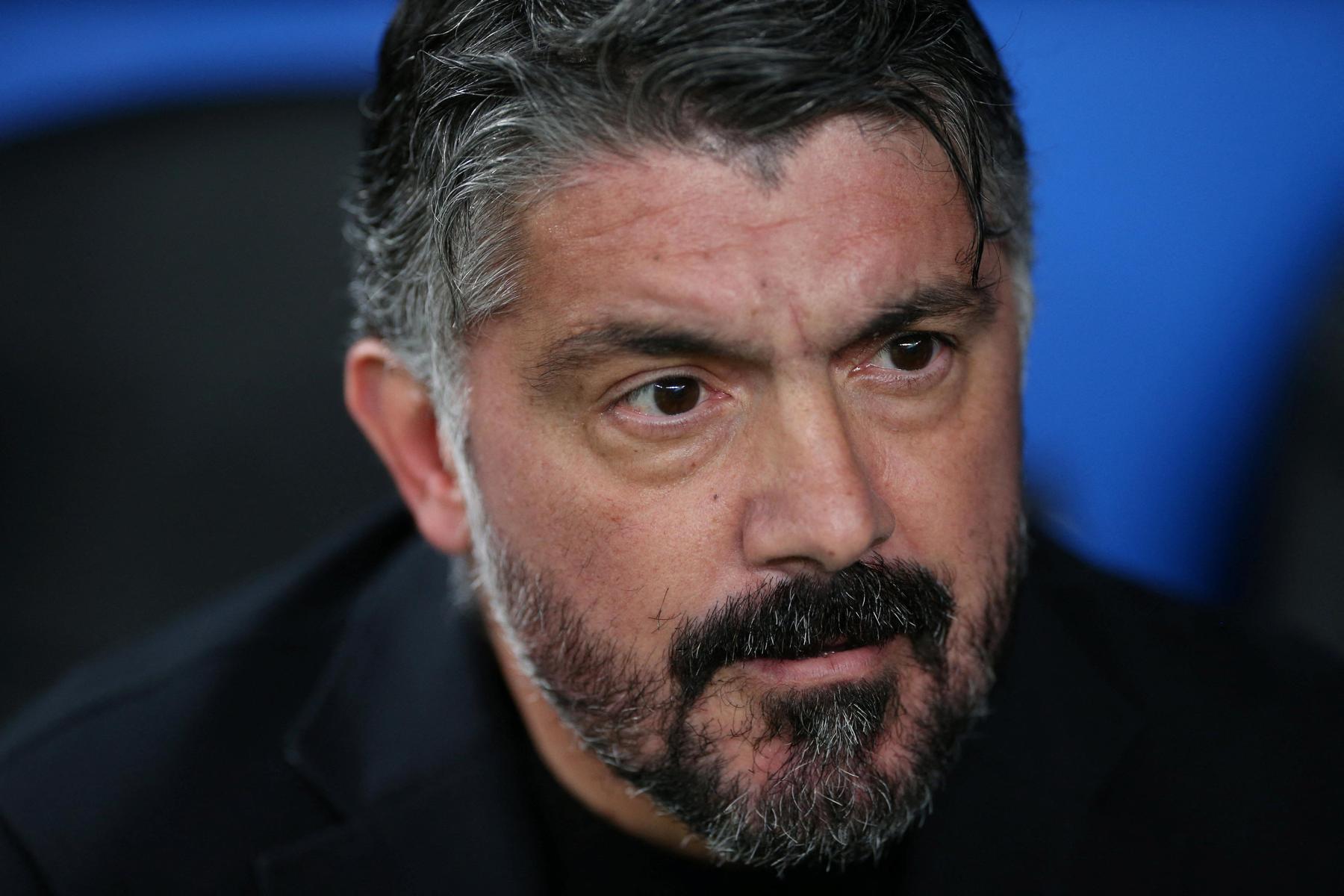Klaas Knot’s successor at DNB: Radical herself but in terms of vision they are a Siamese twins
/s3/static.nrc.nl/images/gn4/data133621258-30eefc.jpg)
« Olaf Sleijpen, director of monetary affairs, eats a bowl of Skyr with dedication as if Skyr is the better caviar. »
« Olaf Sleijpen, who sinks in his chair during meetings and pretends he celebrate as you see him thinking: I could have drink a cocktail on Capri now. »
« Olaf Sleijpen (…) on horseback to the meeting of the ECB in Frankfurt am Main (…). Olaf is wearing a black cape with in white letters: Parler-Vrai. «
Subscribers to The Financieel Dagblad Last fall it could get the impression that there was a real cult figure named Olaf Sleijpen around the management of De Nederlandsche Bank. Writer Arnon Grunberg did ‘internship’ at the financial supervisor and reported this weekly in the FD. In addition to the main character in Grunberg’s writings, President Klaas Knot, President Knots close colleague Olaf Sleijpen explicitly figured. A bit strange, inappropriate, so sleeve came across. Quirky too, different from other DNB people. Radical itself, that anyway.
Arnong Grunberg is not strange any caricaturization of reality, but in essence he managed to find Sleeps well. What Grunberg also stated: « Probably there are two types of DNB’ers. Those who follow Knot: Meeting is yoga with other means. And those who follow sleejes: meetings are like the sweaty feet of my partner I tolerate. »
For the Knot followers, a new period starts in that regard. Because on 30 June – after exactly fourteen years – Knot must finally close the door behind him to make way for the man who was put down like his counterpart: Olaf Sleijpen. But unlike Grunberg suggests, that is especially a choice that will hardly cause a ripple, neither in supervision, nor in monetary policy, the two most important tasks of DNB.
Because characterologically the two differences, economic content may seem bun and his successor are a Siamese twins. Before their appointment, both worked most of their career at DNB, both studied in Groningen (although Limburger Sleijpen first in Maastricht) and both have a strong preference for the intational economy in particular. Outcity Minister Eelco Heinen (VVD) and the Supervisory Board of the Nederlandsche Bank therefore opt for continuity, in times of geopolitical unrest with an imminent trading conflict and a constant war in Ukraine.
The right man in content
The Supervisory Board of DNB, chaired by former top official and minister Martin van Rijn (PvdA), took the lead in the selection of Olaf Sleijpen (Schin op Geul, 1970), with the help of external recruiters. The council kept in touch with the Ministry of Finance during the search. After approval from Heinen, the outgoing cabinet agreed to his appointment.
Sleijpen describes itself as ‘typical nerd’ who was bad in sport and has been bullied considerably
The profile that the Supervisory Board prepared in February this year contains a versatile list of requirements: « in -depth knowledge » must go on monetary and financially with considerable international experience and management experience. Being a DNB president is a function in the public spotlight: a « good social antenna » is needed, a « convincing personality » and « the ability to communicate clearly and convincingly, » said the profile.
Sleijpen, who has been accompanying the Knot to the ECB meetings in Frankfurt for years and often replaces him elsewhere, will not be shocked by these requirements. Sleijpen has been working at De Nederlandsche Bank for years: he started there in 1993 as an economist at the International Affairs department. From 2001 to 2004 he was also an adviser to former ECB president Wim Duisenberg, the first president of the European Central Bank. After a short trip to the pension world, he returned to the bank in 2011.
In his current position as director of monetary affairs, he is responsible for economic policy and research, financial stability, financial markets, payment transactions and market infrastructure, and statistics. In a first reaction, Heinen said that Sleijpen has « an excellent knowledge of monetary affairs, knowledge of the financial sector and an international look. »
« Olaf is a substantively strong, honest and connecting leader, » says departing President Klaas Knot about him. « I have full confidence that he will continue to develop DNB with authority and vision. I wish him every success and satisfaction. »
And chairman of the Supervisory Board Martin van Rijn writes in a reaction: « Olaf Sleijpen is an authority at the intersection of monetary policy, financial stability and European cooperation. He combines substantive depth with administrative experience, has a highly developed social compass and a broad background within DNB – both in the monetary domain and in supervision. »
Sleijpen inherits Van Knot an organization with more than 2,300 employees. As a DNB president, he decides on the monetary policy of the eurozone, in the board of the European Central Bank. DNB is the supervisor of banks, pension funds and insurers and often makes economic recommendations to the cabinet.
The course must be shifted
However, the transition from Knot to Sleijpen will not be completely wrinkle -free. « Sleijpen stands for the important task of further modernizing DNB, » said outgoing Minister Heinen on Friday. With that he shed a little bit of light on the appointment process of recent months. Because that took a very long time this time. Sources in The Hague suggested that this could have to do with the remuneration of the new president. Klaas Knot earns 500,000 euros per year and therefore differs considerably from the maximum that has been established in the Top Income Standardization Act. For 2025 that is 246,000 euros per year. Sleijpen will also earn more than this so-called Balkenende standard: it starts at 450,000 euros a year. The reward of the DNB president is thus further reduced to the WNT standard, says Finance.
Even more remarkable is that Heinen also seizes the appointment of Sleijpen to start a debate about the maximum term of DNB. Sleijpen has been mentioned according to the current seven -year period (with a maximum of once extension). Heinen wants to change that so that a DNB president can serve a maximum of two times for five years. For fourteen years he thinks it is really too long, « then the risk of compulsory room arises. »
It is the second time in a relatively short time that politics intervenes in the duration of a DNB president. In 2010, just before Knot was appointed, the cabinet had just decided that a DNB president could be a maximum of two installments of seven years. That limitation did not apply to that. At the time, that decision was linked to the dissatisfaction that existed in The Hague about the way in which the then DNB president Nout Wellink had been in the banking crisis.
Politically, Heinen’s choice does not seem to encounter much resistance. And also among financial economists, the shortening of the central banker’s term of office is not seen as problematic.
ASPARTIVE AND LIBERAL
Sleijpen grew up in Limburg. In the podcast Leaders in Financein which financial leaders are interviewed weekly, Sleijpen says that he was raised in a protected environment in the South Limburg countryside. He calls his parents socially committed and describes as left -wing CDA people. Father worked at the Central Bureau of Statistics in Heerlen, just before his retirement as head of human resources, his mother was a housewife and active in municipal politics. He himself later became a member of the VVD, and even candidate councilor for that party in Amsterdam.
He calls himself « Radicalized » in his « old age » the area of gay emancipation
Cum laude he achieved his papers at the gymnasium and the university. Already at primary school, he says in the podcast, his classmates called him professor. His glasses didn’t help, he says. « I was also very bad at sport. The typical nerd. » Sleijpen was bullied, he said.
Nout Wellink, one of his predecessors such as DNB president, encouraged him to promote. Sleijpen has always found Europe interesting since he was young. Because of the location of Limburg in the middle of Europe, and because he studied in Maastricht at the time that the Maastricht Convention is concluded. In his dissertation, which he wrote in five years while he also worked for the DNB, he answered the question whether the European Monetary Union requires a budget union. Sleijpen tried to draw lessons from the United States and concluded that « a monetary Union is not necessarily successful when it is accompanied by a political union. » But he also writes: what applies to the United States does not automatically apply to the European Union.
The debate about a more political Union is still current, especially now that joint European investments in defense, climate, technology and innovation are back on the agenda. Here, however, Sleijpen, just like Knot, will have to keep a close connection with the Ministry of Finance. A too quirky course of DNB on European financing is seen as undesirable.
Another characteristic of Sleijpen with which he publicly presents himself: his sexual orientation. Sleijpen is on the Supervisory Board of the Blue Fund. That is a foundation that supports projects that promote LGBTI emancipation. In the podcast he calls himself ‘radicalized’ in his ‘old age’ the area of gay emancipation. Sleijpen, yourself homosexual, says to see the tolerance decrease. He himself has never experienced intolerance, but during his career he also got to know people who had to fight hard for their place. He learned from that: you have to fight for your rights. « We must be aware of the fact that things can be different every day and is also different in the largest parts of the world. »
And how, finally, does columnist Arnon Grunberg look at the appointment of one of his favorite characters? The FD asked him for a response: « He will tackle the economy with healthy perspective and analytical skills. The economy can lie on the couch with confidence. »

/s3/static.nrc.nl/images/gn4/stripped/data133658593-e5775d.jpg|https://images.nrc.nl/s_Tz0T60JmCh_W1SvlWeTwRJKQ8=/1920x/filters:no_upscale()/s3/static.nrc.nl/images/gn4/stripped/data133658593-e5775d.jpg|https://images.nrc.nl/ABecD1Oat1WmJmcr3RCBL0b1bsU=/5760x/filters:no_upscale()/s3/static.nrc.nl/images/gn4/stripped/data133658593-e5775d.jpg)

:format(webp)/s3/static.nrc.nl/images/gn4/stripped/data133626914-70db93.jpg)




